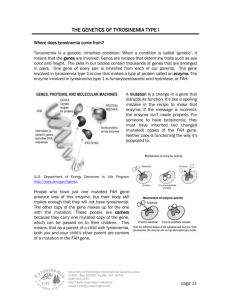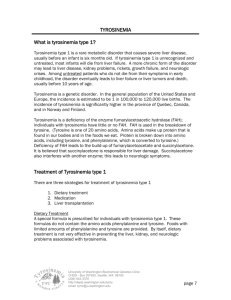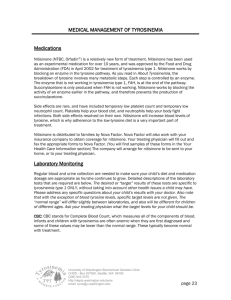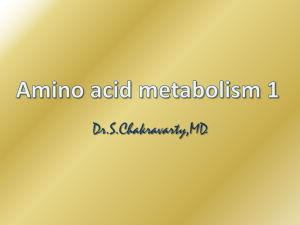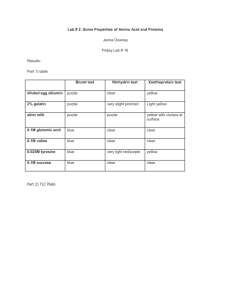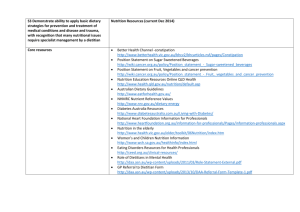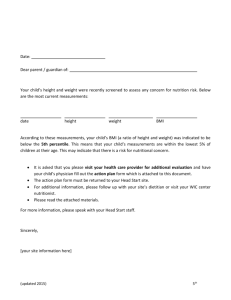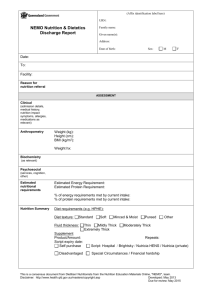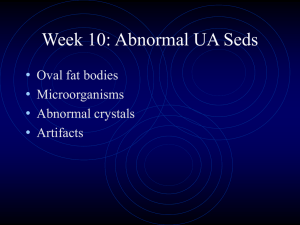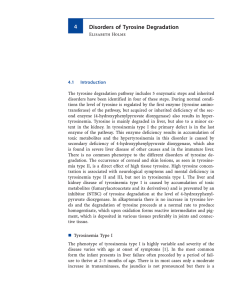- Nutricia
advertisement
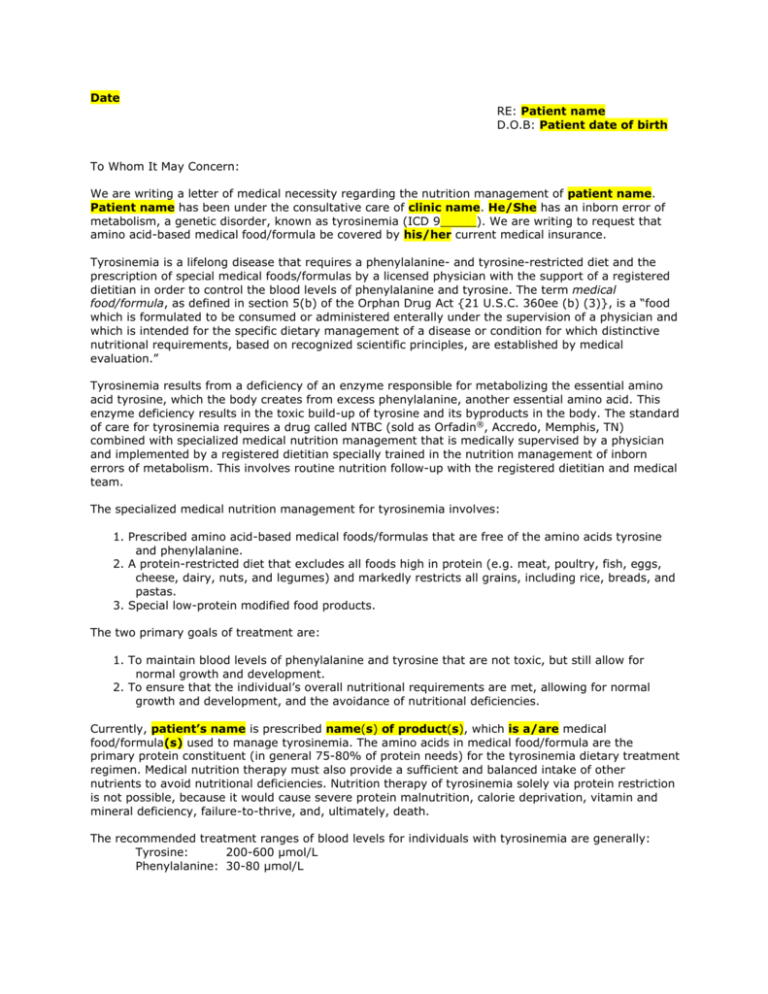
Date
RE: Patient name
D.O.B: Patient date of birth
To Whom It May Concern:
We are writing a letter of medical necessity regarding the nutrition management of patient name.
Patient name has been under the consultative care of clinic name. He/She has an inborn error of
metabolism, a genetic disorder, known as tyrosinemia (ICD 9_____). We are writing to request that
amino acid-based medical food/formula be covered by his/her current medical insurance.
Tyrosinemia is a lifelong disease that requires a phenylalanine- and tyrosine-restricted diet and the
prescription of special medical foods/formulas by a licensed physician with the support of a registered
dietitian in order to control the blood levels of phenylalanine and tyrosine. The term medical
food/formula, as defined in section 5(b) of the Orphan Drug Act {21 U.S.C. 360ee (b) (3)}, is a “food
which is formulated to be consumed or administered enterally under the supervision of a physician and
which is intended for the specific dietary management of a disease or condition for which distinctive
nutritional requirements, based on recognized scientific principles, are established by medical
evaluation.”
Tyrosinemia results from a deficiency of an enzyme responsible for metabolizing the essential amino
acid tyrosine, which the body creates from excess phenylalanine, another essential amino acid. This
enzyme deficiency results in the toxic build-up of tyrosine and its byproducts in the body. The standard
of care for tyrosinemia requires a drug called NTBC (sold as Orfadin®, Accredo, Memphis, TN)
combined with specialized medical nutrition management that is medically supervised by a physician
and implemented by a registered dietitian specially trained in the nutrition management of inborn
errors of metabolism. This involves routine nutrition follow-up with the registered dietitian and medical
team.
The specialized medical nutrition management for tyrosinemia involves:
1. Prescribed amino acid-based medical foods/formulas that are free of the amino acids tyrosine
and phenylalanine.
2. A protein-restricted diet that excludes all foods high in protein (e.g. meat, poultry, fish, eggs,
cheese, dairy, nuts, and legumes) and markedly restricts all grains, including rice, breads, and
pastas.
3. Special low-protein modified food products.
The two primary goals of treatment are:
1. To maintain blood levels of phenylalanine and tyrosine that are not toxic, but still allow for
normal growth and development.
2. To ensure that the individual’s overall nutritional requirements are met, allowing for normal
growth and development, and the avoidance of nutritional deficiencies.
Currently, patient’s name is prescribed name(s) of product(s), which is a/are medical
food/formula(s) used to manage tyrosinemia. The amino acids in medical food/formula are the
primary protein constituent (in general 75-80% of protein needs) for the tyrosinemia dietary treatment
regimen. Medical nutrition therapy must also provide a sufficient and balanced intake of other
nutrients to avoid nutritional deficiencies. Nutrition therapy of tyrosinemia solely via protein restriction
is not possible, because it would cause severe protein malnutrition, calorie deprivation, vitamin and
mineral deficiency, failure-to-thrive, and, ultimately, death.
The recommended treatment ranges of blood levels for individuals with tyrosinemia are generally:
Tyrosine:
200-600 μmol/L
Phenylalanine: 30-80 μmol/L
There is a strong correlation between cognitive function and maintenance of blood tyrosine levels in
this treatment range. Elevated blood levels of tyrosine have been associated with multiple acute and
chronic clinical symptoms. A child with tyrosinemia for whom dietary management is not sustained will
initially suffer liver failure, vomiting, bleeding, sepsis, hypoglycemia, and renal tubulopathy. Chronic
symptoms include painful corneal lesions, hepatomegaly, cirrhosis, growth retardation, rickets,
hematoma, neuropathy, and neurological delay. Irreversible brain damage can occur if tyrosinemia is
not well-controlled. Normal growth and development are possible if an infant with tyrosinemia is
treated appropriately. Currently, indefinite continuation of nutrition management is recommended for
all patients with tyrosinemia.
We appreciate your attention to this request for patient’s name’s medical formula(s), name(s) of
medical formula(s), to be covered by his/her current medical insurance. Please do not hesitate to
contact us if you have any questions at clinic contact information.
Sincerely,
dietitian name, RD, LDN
Physician name, M.D.
physician credentials, clinic name
Cc: parents’ names
Nutricia® Product Information and Codes for Tyrosinemia Products
Name
Flavor
Reimbursement/
NDC Code
Product Code
HCPCS Code(s)
XPhe, XTyr Analog
Unflavored
49735-0183-01
118301
B4162
XPhe, XTyr
Maxamaid
Orange
49735-0177-86
117786
B4162
XPTM Analog
Unflavored
49735-0188-43
118843
B4162
TYR Lophlex LQ
Mixed Berry Blast
49735-016750
566750
B4157 OR B4162
